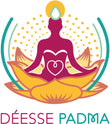In recent years we have witnessed a real revolution in the world of washable intimate protection.
Even though supermarket shelves are still full of single-use, i.e. disposable, sanitary pads, reusable alternatives are flourishing.
Menstrual cups, washable sanitary napkins and menstrual panties bring a breath of fresh air and freedom to menstruation.
Very practical to use, washable, combining efficiency, transparency and ecology, all these products are becoming increasingly popular.
The question naturally arises of the impact of these different intimate protections on health and beyond.
Do you still use scratchy plastic disposable pads? It may be time to reconsider your habits.
First of all, it is important to remember that in Europe, there are still no specific regulations governing the composition and manufacture of intimate protection products.
In 2016, a study of "60 million consumers" caused a stir by revealing that many residues of toxic substances had been detected in intimate protection, whether external such as sanitary napkins or internal such as tampons. Traces of glyphosate, chlorine and other endocrine disruptors in direct contact with the vaginal mucous membranes, all of which are particularly harmful to health and can cause infection and "vaginal problems" (irritation, ulceration, dryness , pruritus, etc.)
With washable intimate protections you avoid exposing your vaginal mucous membranes every month to pesticides and other toxic and carcinogenic products.
At Déesse Padma, the composition of our washable sanitary napkins and our period panties is transparent. We only use organic cotton fabrics or certified by the Oeko-Tex standard 100 label, guaranteeing the absence of toxic products for the body and the environment. Our fabrics are European and we manufacture them in Morocco in an ethical factory.
As for the menstrual cup, it is an internal protection and a healthy alternative to the tampon. The one we offer is made in France in hypoallergenic pharmaceutical silicone providing comfort and respect for the vaginal flora.
What about menstrual toxic shock syndrome? This very serious syndrome only affects internal protections. It is not linked to the composition of the protection but rather to its use, as ANSES* explains in its report: "the risk of developing this syndrome caused by a bacterial toxin is linked to the conditions of use of all forms of internal periodic protection”.
This therefore also concerns the cup which must be used for a maximum of 6 to 8 hours and replaced at night by a towel or panties.
Finally, let's remember the importance of washing your hands before and after handling the protections in order to prevent dirt or hot sauce from getting from your fingers to your protections and irritating your private parts!
Healthier for the body, washable intimate protections are also healthier for the planet with less waste.
Women get their period up to 500 times in a lifetime. The legend says that one could each year take all the disposable protections used in the world, put them end to end and materialize the earth-moon distance.
In any case, the statistics indicate between 10,000 and 15,000 protections used per woman during her life, or 300 kg of waste per woman on average. That's huge!!
With reusable pads, there are no more towels piling up in the bin and no more plastic waste generated by applicators and other packaging that can take hundreds of years to disappear. The washable protections contribute to a significant reduction of waste.
This is the best solution for those who want a zero waste bathroom and thus work for the health of the planet.
Reusable pads are also healthier for the budget as they are more economical over time.
It's hard to know the cost of menstruation in a woman's life. You can find calculators but it all depends on the type of protection used. Some calculations also take into account stained clothes and linens that need to be replaced more often, remedies for painful periods, etc.
A 2019 Le Monde study estimates the cost at 3,800 euros for a lifetime of menstruation.
Anyway, it's always too much, especially when you know that menstrual poverty affects 2 million women in France. Reusable protections have a higher cost than the purchase but their lifespan of at least 3 to 5 years allows them to be amortized in the medium term. They are even much more economical in the end.
At Déesse Padma, we practice fair prices and work for menstrual solidarity so that as many women as possible have access to healthy protection.
Finally, for us reusable protections are also healthier for the mind... Oh, how come? Because they participate in reducing the mental workload of women.
Mental workload is the fact of thinking simultaneously about everything you have to do for yourself, your home and your family. How many women have already forgotten to buy pads and found themselves asking around for help or improvising with toilet paper.
With reusable pads, you can say goodbye to the constant preoccupation with periods. You always have panties, a towel or your cup at home in a drawer. It really is a relief, one less thing to think about every month!
It is undeniable, washable intimate protections have several major advantages to their credit, in addition to that of reliability. Today, technical fabrics provide safe and comfortable protection in order to wear them safely.
So want to try?
Sources:
*ANSES: https://www.anses.fr/fr/system/files/CONSO2016SA0108Ra.pdf
https://www.consoglobe.com/substances-que-cachent-protections-intimes-cg/2#sourceup3
.

